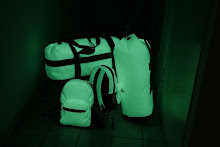Thursday, 19 August 2010
Wednesday, 10 February 2010
New British Camouflage Patterns
I guess time will tell - I look forward to reading the reviews by the people who have to wear it in the field on the Arrse website- these are often amusing, completely unofficial and often rather biased responses which can be read at leisure.
How not to reach out to your customers.
Back to the old queues in passport control for me.
Thursday, 17 December 2009
Tuesday, 15 December 2009
Sunset on 2009
Whilst the onset of the stock market decline and financial turbulence was fast, many businesses I have spoken to were taken completely by surprise at the decline of the major gold standard currency – the dollar, and the relative devaluation of sterling against the dollar and the euro, its other major trading partner.
I truly believe that we are now in a period of fundamental economic evolution, with the industrial economies of the UK, US and others exposed and challenged on the world stage by China, India and the Pacific Rim. The relative strength of the Chinese internal economy is notable. And what remains to be seen is whether the main western economies can revitalise and reinvent themselves and reverse a seemingly inexorable slide into industrial decline. Look to Canada as an example of a company that has retained and nurtered a solid industrial base - a model of good governence.
The opportunities, the will and the talent is there – and there are even glimmers of positive growth in some sectors. Both in terms of ideas, research, and ability to develop and commercialise. The challenge for the months ahead is to identify, harnessing, nurture, protect and exploit. A challenge for everyone from the bottom up and the top down.
Monday, 19 October 2009
TckTckTck
Copenhagen 7-15 December. http://tcktcktck.org/ Climate change is here - and don't let the nay-sayers confuse the issue when they rubbish the science of global warming theories. The world is heating up and is already heating many people out of existence - it won't make the news again until it starts affecting our lives in the West as much as it affects those in Asia, the Pacific, Africa and elsewhere.
Can we stop it? Whilst I'm definitely not in favour of reducing human economic activity (this would actually accelerate environmental degradation), perhaps we do need to think about how our consumption affects communities on the other side of the world.
We already have Fairtrade food, a great, inexpensive and fair way to redistribute profits in the supply chain; so why not have a sustainability brand that could apply to the millions of items imported from the pacific Rim. Who would begrudge a few extra pennies to organizations that reinvest some of their profit back into restoring and enhancing their environment? And manufacturers could easily develop policies on sourcing their imported products from suppliers accredited to such schemes. Wouldn't it be great to know that the Star Wars toy you had bought for your child for Christmas was from a factory in China that generated it's own wind power...?
As a business manager, a recent tender request forced our organisation to consider the ethical issues surrounding sourcing and manufacturing products. The timing of it prompted us to extend our ethical policies to include a policy on sustainable sourcing. and working with suppliers to promote a mindset that places issues such as recycling, energy use, waste disposal etc.
There are no easy answers, that's for sure, but like the ripples in a pond, the small changes we in the West in the next months and years make can as individuals and in our organisations make a far greater impact on the other side of the world.
Wednesday, 24 June 2009
Setting the tone...
This landmark day sees my first blog. Why am I doing this? Well, firstly the textile business has been a big part of my life; from working in the leather industry with Pittards, to bespoke shirtmakers Harvie & Hudson in London ( - great shirts!). Secondly I have always been in manufacturing businesses since I started work (Crown Wallcoverings, Wilkinson Sword, Plysu, H.Fine & Son) , and I love the process of conceptualisation, design, prototyping, testing and manufacturing; I am privileged that I visit companies that manufacture all kinds of products. I'm also very happy to be running a business that specialises in textiles and manufactures products (KMA Textiles Ltd).
There are some big issues within the industrial textile industry which are worthy of comment and discussion. So over the next few weeks, months and years, I'll be sharing my experiences and chewing over some of these issues (recycled textiles, the challenges and opportunities of the Far East, technical innovation and its application, the recession as well as items of lighter consequence. All of which hopefully will be of some interest.
